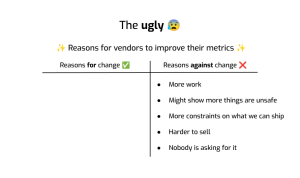Why Gen Z Is Changing the Online Dating Game sets the stage for this enthralling narrative, offering readers a glimpse into a story that is rich in detail with research style and brimming with originality from the outset. As the first generation to grow up with the internet as a constant presence, Gen Z is reshaping the landscape of online dating in profound ways.
With a unique blend of values, preferences, and technological fluency, they are redefining how relationships are initiated and nurtured in the digital realm, making it essential to explore the implications of their approach.
In the contemporary global landscape, the importance of scientific research cannot be overstated. Scientific research serves as the backbone for advancements across diverse fields, influencing technology, healthcare, environmental sustainability, and social sciences. This article aims to delve into the multifaceted nature of scientific research, exploring its definition, methodologies, significance, and the ethical considerations that underpin it, while also addressing the challenges faced by researchers in the modern world.### Definition of Scientific ResearchScientific research is a systematic endeavor that aims to discover, interpret, and revise facts, events, and theories.
It typically follows a specific methodology that includes observation, experimentation, and analysis. This structured approach ensures that findings are reliable and can be reproduced, thus forming a basis for further research and application. Scientific research can be categorized into two primary types: basic (or fundamental) research and applied research. Basic research seeks to expand our understanding of the underlying principles of phenomena, while applied research aims to solve practical problems using the insights gained from basic research.### Methodologies in Scientific ResearchThe methodologies employed in scientific research are diverse and depend on the field of study.
The most common approaches include:
1. Quantitative Research
This method involves the collection and analysis of numerical data, allowing researchers to identify patterns, test hypotheses, and make predictions. Quantitative research is particularly prevalent in fields such as psychology, sociology, and health sciences, where statistical methods are used to analyze relationships between variables.
2. Qualitative Research
In contrast to quantitative research, qualitative research focuses on understanding the subjective experiences of individuals. This approach often involves interviews, focus groups, and content analysis, allowing researchers to gather rich, contextual data that quantitative methods may overlook. Fields such as anthropology, sociology, and education frequently employ qualitative research designs.
3. Mixed-Methods Research
This approach combines both quantitative and qualitative research methodologies, providing a more comprehensive view of the research problem. By integrating numerical data and narrative accounts, mixed-methods research can yield more nuanced insights.
4. Experimental Research
Often used in the natural sciences, experimental research involves manipulating one or more independent variables to observe their effect on dependent variables. This method is critical for establishing cause-and-effect relationships.
5. Observational Research
This method involves observing subjects in their natural environment without manipulation. Researchers collect data through direct observation, which can be either structured or unstructured.### The Significance of Scientific ResearchThe significance of scientific research extends beyond academia; it plays a crucial role in driving innovation and informing public policy. Here are several key areas where scientific research has made a substantial impact:
1. Healthcare Advancements
Scientific research is at the forefront of medical advancements, contributing to the development of new treatments, vaccines, and diagnostic tools. For instance, the rapid development of COVID-19 vaccines showcased the power of collaborative scientific research, which leveraged existing knowledge of mRNA technology.
2. Technological Innovation
Research fuels technological progress, leading to new inventions and improvements in existing technologies. From the development of artificial intelligence to advances in renewable energy technologies, scientific research fosters innovation that shapes our modern world.
3. Environmental Sustainability
Climate change and environmental degradation are pressing global challenges that require scientific investigation. Research in environmental science helps us understand ecosystems, biodiversity, and the impact of human activity on the planet, informing policies aimed at sustainability and conservation.
4. Social Progress
In social sciences, research helps us understand societal dynamics, behaviors, and structures. Insights gained from social research inform public policy, contribute to social justice initiatives, and promote community engagement and development.### Ethical Considerations in Scientific ResearchAs scientific research becomes more influential, ethical considerations have gained prominence. Researchers must navigate a complex landscape of ethical dilemmas, ensuring that their work is conducted responsibly.
Key ethical issues include:
1. Informed Consent
Participants in research studies must provide informed consent, understanding the nature of the research, potential risks, and their right to withdraw at any time. Researchers must ensure that participants are fully aware of what their involvement entails.
2. Confidentiality and Privacy
Protecting the privacy of research participants is paramount. Researchers must implement safeguards to ensure that personal information is kept confidential and used solely for research purposes.
3. Integrity in Research
Scientific integrity is essential for maintaining public trust in research. This includes avoiding fabrication, falsification, and plagiarism. Researchers must adhere to ethical guidelines and standards set by their respective fields.
4. Dual Use Research
Some scientific advancements can be used for both beneficial and harmful purposes. For example, research in biotechnology can lead to medical breakthroughs but also raise concerns about biosecurity. Researchers must consider the potential implications of their work.
5. Equity and Inclusion
Ensuring that research benefits all segments of society is an ethical imperative. Researchers should strive for diversity in study populations and avoid perpetuating inequalities through their work.### Challenges in Scientific ResearchDespite its significance, scientific research faces numerous challenges in the modern era:
1. Funding Constraints
Securing funding for research projects can be daunting. Many researchers rely on grants and donations, which can be competitive and limited. This financial pressure can impact the scope and quality of research conducted.
2. Reproducibility Crisis
The reproducibility crisis refers to the difficulty in replicating research findings, particularly in psychology and biomedical sciences. This issue raises questions about the reliability of published studies and calls for greater transparency in research methodologies.
3. Public Perception and Misinformation

The rise of misinformation, particularly in the age of social media, poses a significant challenge for scientific research. Researchers must engage with the public to communicate their findings effectively and combat misinformation.
4. Technological Advances
While technology offers new opportunities for research, it also presents challenges related to data management, analysis, and ethical considerations surrounding data collection.
5. Global Collaboration
As research becomes increasingly globalized, issues such as differing ethical standards, cultural differences, and intellectual property rights can complicate international collaborations.### ConclusionThe role of scientific research in shaping our world is undeniable. From advancing healthcare and technology to addressing societal challenges, research has the power to drive progress and innovation. However, it is imperative that researchers uphold ethical standards, navigate challenges, and engage with the public to ensure that scientific knowledge is used for the benefit of all.
As we move forward, the integration of diverse methodologies and a commitment to ethical conduct will be essential to the continued success and credibility of scientific research.






